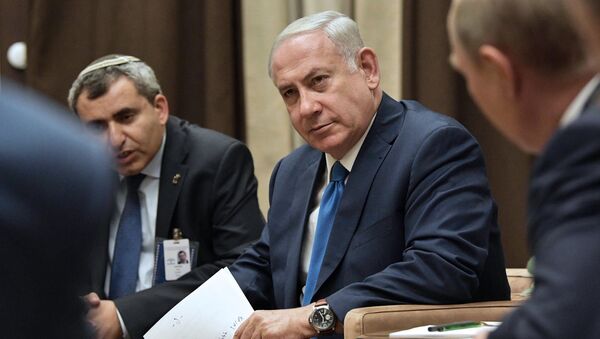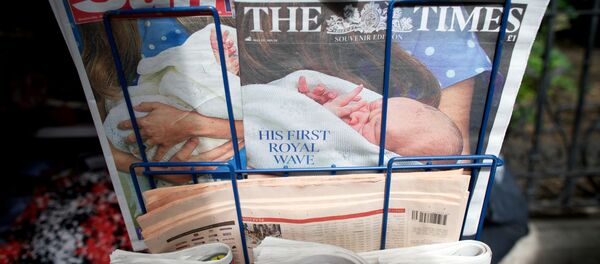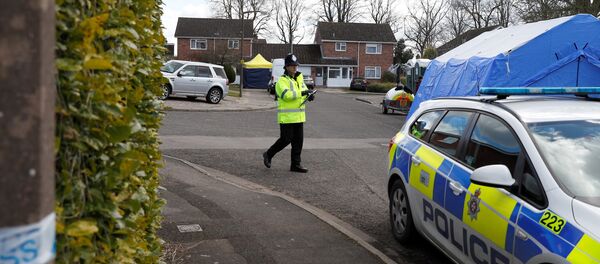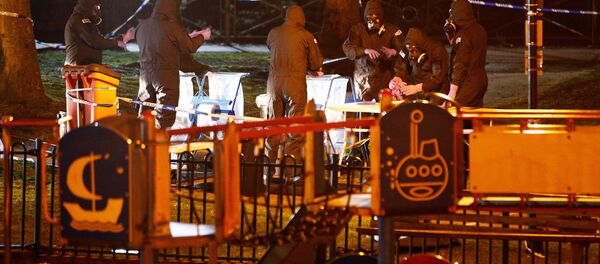Israel has not joined the UK-led chorus of execration accusing Russia of poisoning former spy Sergei Skripal in the English town of Salisbury, and has refused to expel Russian diplomats, the Jerusalem-based Israeli political analyst Avigdor Eskin writes for RIA Novosti.
When asked about Israel's position on the decision by over 20 nations, including the US and Canada, to expel more than 100 Russian diplomats, the country's Foreign Ministry responded laconically: "No comments," as quoted by Haaretz.
"Earlier, according to the press, the British exerted considerable pressure on the government of Israel, persuading it to join the Western accusations against Russia. As a result, the Israeli Foreign Ministry issued a statement condemning the poisoning itself, but Russia was not mentioned there in any way," Eskin underscored.
The analyst highlighted that Tel Aviv's position is especially significant; the decision not to automatically blame Moscow could signify that the famed Israeli national intelligence agency Mossad refuses to accept the unsubstantiated British narrative about Russian involvement in the Skripal poisoning.
According to Eskin, "this brings the official British version into question, because nobody has any doubts about the level of awareness and professionalism of Mossad."
"It was the hope that the Israeli intelligence service would confirm the British fantasies, which lay behind the persistent harassment of Israel by various British departments," he noted, adding that the UK Embassy in Israel even went so far as to openly demonstrating its dissatisfaction with Tel Aviv's decision.
The question that arises, according to the analyst, is what prompted Israel to take a stance contradicting the policy of its closest allies, the UK and the US.
"During the eight years of the reign of Barack Obama, US relations with Israel had been constantly strained, and sometimes even tense," Eskin recalled. "However, from the day of Donald Trump's coming to power, Washington has been in a state of continuous honeymoon with Jerusalem. One can say with confidence that it was not easy for [Israeli Prime Minister Benjamin] Netanyahu to demonstrate full independence [from Washington] and declare neutrality, especially given the fact that this neutrality was perceived by everyone as support for Russia."
According to the political analyst, Israel's move not only demonstrates Tel Aviv's determination to hold its own — Eskin recalled that Israel has repeatedly condemned the glorification of Nazism in the UN, showing solidarity with Russia — but also Moscow's increasing influence in the Middle East.
While it appears that the Salisbury case is likely to put US-Israeli relations to the test, "when it has come to censuring Russia, the Jewish state usually perches itself quietly on the fence rather than side with its traditional allies and risk the Kremlin's wrath," the media outlet wrote.
On the other hand, "in the last gestures of Israel, one can see the results of its current strategic understanding with Russia on Syria," Eskin pointed out.
"Over the past two years, Israeli Prime Minister Benjamin Netanyahu has visited Russia seven times," the Israeli political analyst highlighted. "He became convinced of the fact that this is not only a powerful country, but also a power that always fulfills agreements. It is a pity that Israel's Western allies are not able to analyze this phenomenon and learn from it that cooperation with Russia is a guarantee of stability."
To illustrate his point, Eskin referred to Russia's counter-terrorism operation in Syria, that led to the liquidation of Daesh (ISIS/ISIL)* and the significant reduction of violence in the region. He recalled that just two years ago, terrorists controlled more than 80 percent of Syrian territory.
The aforementioned gestures of goodwill are not naive altruism on the part of Israel, the political analyst emphasized — "this is the recognition of the importance of Moscow's role in the Middle East and the world."
On March 4, former MI6 agent Sergei Skripal, 66, and his daughter Yulia, 33, were reportedly subjected to a chemical attack by the A-234 nerve agent. Although the investigation into the case will take "several weeks and months," according to the Metropolitan Police, London groundlessly accused Moscow of involvement in the Skripal poisoning and expelled 23 Russian diplomats from the UK. Russia responded with a similar measure.
Meanwhile, over 20 countries including the US and Canada have followed the UK's suit and initiated the expulsion of Russian envoys. For its part, Washington deported 60 diplomats and ordered the closing of Moscow's consulate-general in Seattle.
*Daesh (ISIS/ISIL) is a terrorist organization banned in Russia.
The views and opinions expressed by Avigdor Eskin are those of the contributor and do not necessarily reflect those of Sputnik.







